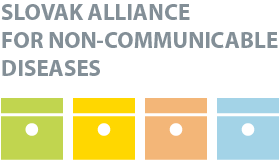—
Health System in Slovakia
Slovakia: Health System Review was published in the Health Systems in Transition series in 2011 by European Observatory on Health Systems and Policies and WHO Regional Office for Europe. Authors are Tomáš Szalay, Peter Pažitný, Angelika Szalayová, Simona Frisová, Karol Morvay, Marek Petrovič (all from Health Policy Institute) and Ewout van Ginneken (from the Observatory team).
The HiT profiles are country-based reports that provide a detailed description of a health system and of policy initiatives in progress or under development. HiTs examine different approaches to the organization, financing and delivery of health services, and the role of the main actors in health systems; describe the institutional framework, process, content and implementation of health and health care policies; and highlight challenges and areas that require more in-depth analysis.
 |
Slovakia: Health System Review
Authors: T. Szalay, P. Pažitný, A. Szalayová, S. Frisová, K. Morvay, M. Petrovič, E. van Ginneken Published by Observatory, April 2011, 203 pages ISSN 1817–6127 Vol. 13 No. 2 |
download (pdf, 5 MB) |
The HiT profiles are country-based reports that provide a detailed description of a health system and of policy initiatives in progress or under development. HiTs examine different approaches to the organization, financing and delivery of health services, and the role of the main actors in health systems; describe the institutional framework, process, content and implementation of health and health care policies; and highlight challenges and areas that require more in-depth analysis.
Executive summary of Slovakia: Health System Review from the Health Systems in Transition series published in 2011 by European Observatory on Health Systems and Policies and WHO Regional Office for Europe.
- 5.1 Public health
- 5.2 Patient pathways
- 5.3 Ambulatory care
- 5.4 Inpatient care
- 5.5 Emergency care
- 5.6 Pharmaceutical care
- 5.7 Rehabilitation/intermediate care
- 5.8 Long-term care
- 5.9 Palliative care
- 5.10 Mental health care
- 5.11 Dental care
- 5.12 Complementary and alternative medicine
- 5.13 Health care for specific populations
The Slovak health system is a system in progress. Major health reform in the period 2002–2006 replaced all relevant health care related legislation and meant a new approach based on individual responsibility and managed competition. The health insurance funds became profit-making companies, hard budgetary constraints were introduced, and a new regulatory and institutional framework was created. The model sought to create an environment in which societal goals are met through incentives for market players. The future of this system largely depends on political will. Opposing political views may lead to different decisions regarding market mechanisms and state control. The government that entered into power in 2010 pledged to move forward with the market reform agenda.
News
The amendment of the Decree on emergency medical service
Health insurance companies returned over 400 thousand €
The HCSA received 1,647 complaints last year
A half million people will earn more
Most of public limited companies ended in the black
Debt of hospitals on premiums has grown to nearly € 105 MM
Slovak health care may miss € 250 million next year
Profits of HIC amounted to € 69 mil. last year
Owners of Dôvera paid out money but did not paid taxes
Like us on Facebook!
Our analyses
- 10 Years of Health Care Reform
- New University Hospital in Bratislava
- Understanding informal patient payments in Kosovo’s healthcare system
- Analysis of waiting times 2013
- Health Policy Basic Frameworks 2014-2016
- Analysis of informal payments in the health sector in Slovakia
- Serbia: Brief health system review
developed by enscope, s.r.o.
